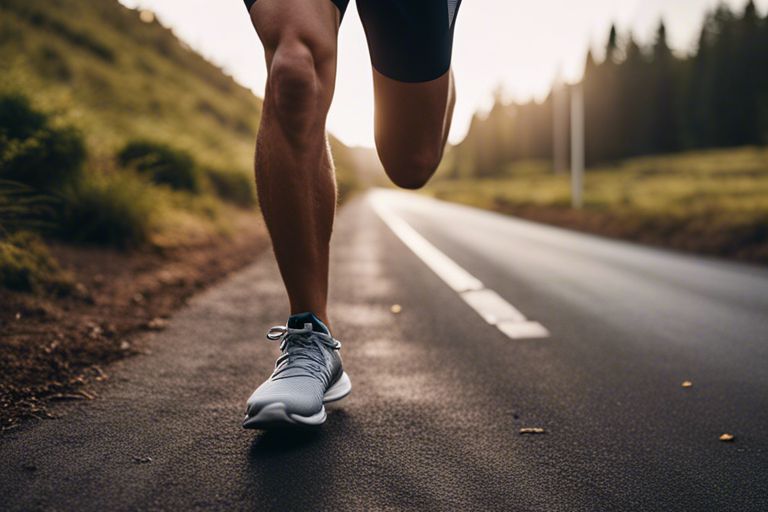When considering maximising your jogging performance, nutrition plays a crucial role. Fueling your body with the right foods before, during, and after a run can significantly impact your energy levels, endurance, and recovery. In this blog post, we will focus on the necessary nutrients and snacks to consume during a run to keep you going strong and help you reach your fitness goals. Let’s explore the best options to keep you energised and hydrated while pounding the pavement.
Key Takeaways:
- Carbohydrates are key: Consuming easily digestible carbs during a run can help maintain energy levels and prevent fatigue.
- Avoid high-fibre foods: Foods high in fibre can cause gastrointestinal distress while running, so choose low-fibre options.
- Stay hydrated: Drink water or sports drinks to prevent dehydration and help with nutrient absorption.
- Experiment with different snacks: Find what works best for you by trying out various snacks like energy gels, chews, or fruits during your runs.
- Consider your goals: Tailor your nutrition during runs based on the intensity and duration of your exercise, whether it’s a casual jog or a long-distance run.
Understanding Nutrition and Running
The Relationship Between Diet and Exercise
It is important to understand the intricate relationship between diet and exercise, particularly when it comes to running. The fuel you provide your body with can significantly impact your performance, endurance, and recovery. By consuming the right nutrients before, during, and after your runs, you can maximise your potential and achieve your fitness goals more effectively.
Nutritional Needs for Joggers
Joggers have specific nutritional needs that must be met to support their running routine. Carbohydrates are important for providing the energy required for endurance activities, while proteins aid in muscle repair and recovery. Hydration is also crucial to maintain optimal performance and prevent fatigue. Additionally, incorporating fruits, vegetables, and healthy fats into your diet can help enhance overall health and performance as a jogger.
What to Eat Before a Jog
The Importance of Pre-Run Meals
Ensuring you have the right fuel before heading out for a jog is crucial for performance and overall well-being. Pre-run meals provide your body with the necessary energy and nutrients to sustain your exercise and help prevent fatigue.
Ideal Foods and Timing for Pre-Run Nutrition
Opt for easily digestible carbohydrates such as bananas, toast, or a small bowl of porridge about 1-2 hours before your jog. Including a source of protein like yoghurt or a handful of nuts can also aid in muscle recovery. Avoid high-fibre and high-fat foods as they can cause digestive discomfort during your run.
Nutrition During the Run
Hydration Strategies While Jogging
Staying hydrated while jogging is crucial to maintain performance and prevent dehydration. Carry a water bottle or utilise hydration packs designed for runners to ensure you can access fluids easily during your run. Sip water at regular intervals, especially on hot days or during long runs, to replace the fluids lost through sweat.
Quick Energy Sources for Long-Distance Runs
When tackling long-distance runs, it’s important to fuel your body with quick energy sources to sustain your performance. Consider carrying energy gels, bananas, or energy bars to provide a rapid source of carbohydrates for your muscles. These easily digestible options can help maintain your energy levels and delay fatigue during your run.
Post-Run Nutrition
The Significance of Recovery Meals
After a strenuous run, your body requires proper nourishment to aid in recovery. Recovery meals are important to replenish glycogen stores, repair muscle tissue, and rehydrate the body. Consuming the right nutrients post-run is crucial for optimising recovery time and enhancing performance in future workouts.
Best Foods to Consume After Jogging
Optimal post-run nutrition includes a combination of carbohydrates and protein to refuel and repair the body. Some of the best foods to consume after jogging are bananas, Greek yoghurt, whole grain toast with nut butter, or a protein shake. These options provide the necessary nutrients to promote muscle recovery and replenish energy levels.
It’s important to aim for a 3:1 ratio of carbohydrates to protein in your post-run meal or snack to support muscle repair and glycogen replenishment. Additionally, staying hydrated by drinking plenty of water or a electrolyte-rich beverage is also key in aiding recovery after a run. Planning your post-run nutrition carefully can help you bounce back quicker and perform better in your next jogging session.
Conclusion: Jogging and Nutrition – What to Eat During a Run
When all is said and done, maintaining proper nutrition is imperative for optimal performance during a run. Consuming easily digestible carbohydrates like energy gels or fruits can provide the necessary fuel for a successful jogging session. Additionally, staying hydrated with water or electrolyte-rich beverages is crucial to prevent dehydration. It’s important to listen to your body’s cues and experiment with different food options to find what works best for you. By paying attention to your nutrition before and during a run, you can enhance your endurance, speed, and overall jogging experience.
FAQ
Q: What are some recommended foods to eat before a run for sustained energy?
A: It is advisable to consume foods rich in carbohydrates and low in fat and fibre before a run. Some examples include porridge, bananas, or wholegrain toast with peanut butter.
Q: Is it necessary to eat during a long run, and if so, what are some recommended snacks?
A: Eating during a long run can help maintain energy levels. Opt for easily digestible snacks such as energy gels, dried fruits, or energy bars to refuel and stay energised.
Q: How important is hydration during a run, and what are some suggested drinks to consume?
A: Staying hydrated is crucial for performance and safety during a run. It is recommended to drink water or sports drinks that provide electrolytes to replenish what is lost through sweat.
Q: Can consuming caffeine before a run enhance performance, and if so, what are some sources of caffeine?
A: Caffeine can improve endurance and alertness. Sources of caffeine like black coffee, green tea, or energy drinks can be consumed in moderation before a run to potentially enhance performance.
Q: After a run, what are some ideal foods to aid in recovery and muscle repair?
A: After a run, focus on consuming a combination of protein and carbohydrates to aid in muscle recovery. Foods such as lean meats, quinoa, sweet potatoes, or Greek yoghurt can help replenish energy stores and repair muscle tissue.






